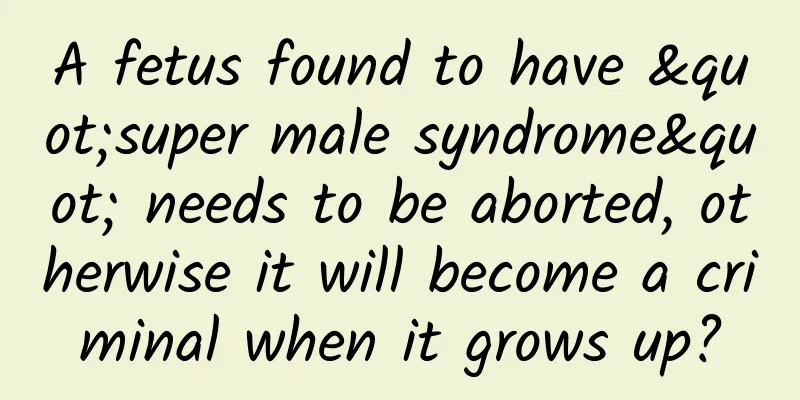What does the skyrocketing price of KFC’s limited edition blind boxes tell us about our psychology?

|
Key Points ★ The “Pandora Effect” makes us flock to uncertain blind box dolls. ★ The reason why the hidden version of the blind box doll can increase in value so much is closely related to the random reward mechanism. ★ We like to hoard things, and we always overestimate our control over the environment, so opening blind boxes makes us "addicted". Recently, KFC has been trying hard to attract more customers to buy its food. First, it launched a series of price-cutting "KFC Crazy Thursdays", and now it has cooperated with Pop Mart to launch a blind box meal. KFC's blind box dolls attract countless consumers to spend money | Source: Internet As soon as the blind box came out, people who were chasing after the blind box dolls rushed to buy the set meal. Some people spent a lot of money and ordered 106 sets of meals at one time; some people "ate on behalf of others" just to help their employers get the blind box. In just a few days, the value of second-hand blind box dolls skyrocketed. In order to avoid food waste, the China Consumers Association personally stepped in and commented: "We should boycott." Source Network What is the magic of blind boxes that touches everyone's nerves so much and makes us willing to spend a lot of money on them? 01 The more uncertain you are, the more you like it? Pandora Effect Humans are always curious about unknown things and are willing to take risks to find out. Professor Kaiyuan Xi of the University of Chicago Booth School of Business calls this the "Pandora Effect." In one of his studies, participants risked electric shocks in order to figure out the pattern of discharge of red and blue ballpoint pens. Similarly, the most attractive thing about blind boxes is that before you open them, you can only be sure that there is a small doll inside, but you can't know which model the small doll is. This uncertain Schrodinger feeling surges in people's hearts, stimulating their nerves and attracting them to figure out what is hidden in the paper box. The "Pandora Effect" comes from humans' primitive desire for uncertainty. In many studies, scientists have found using brain scanning technology that when people don't know what will happen, the striatum becomes active. The activity of the striatum motivates us to explore the outside world and expect our exploration to be rewarded. It is worth mentioning that the good or bad results do not affect our desire to explore. For example, when you want to chat up a beautiful woman in a bar, whether the result is to ask her to get out or leave her phone number, your striatum will light up before taking action. Tuchong Creative It can be seen that curiosity is rooted in human instinct, and any unknown thing will make us have the urge to uncover the mystery. This explains why blind boxes have always been so popular among fans. 02 Must be a "hidden version"? Magical power enhanced at irregular intervals After the blind box is opened, it is most likely to be an ordinary model, but there is also a small probability that it is a hidden model or limited edition that will make you scream. If you can open a hidden model, you will make a profit. It is worth keeping it for yourself or selling it at a higher price. According to the statistics of Xianyu, among the blind box products of "Pop Mart", the "Pan God" hidden model blind box with the fastest price increase was originally priced at 59 yuan, and the Xianyu price was 2,350 yuan, a 39-fold increase; while the "Molly" hidden model was originally priced at 59 yuan, and the Xianyu average price was 1,350 yuan, an increase of 22 times. Tuchong Creative Although the probability of drawing a "hidden version" is not high, the experience of occasionally getting a "hidden version" is unforgettable. The "intermittent reinforcement" caused by this uncertainty has the best reinforcement effect on repeated decisions. "Non-fixed interval reinforcement" is a random reward mechanism that is most likely to lead to addictive behavior. Psychologist Skinner did such an animal experiment in his early years: when a mouse accidentally pressed the lever he used as a trigger for a reward event, he gave the mouse a food reward. After a period of time, the mouse would intentionally press the lever to get food. Then he gradually changed the number of times the mouse had to press the lever to get food to observe the changes in the mouse's behavior. He found that if he stopped giving the rats food, they gradually stopped pressing the lever, even when they heard the sound of the feeding tube. Then he began to randomize the number of times the rats had to press the lever to get food - the rats might press it once to get food, or they might have to press it 40 times to get food. Skinner compared fixed ratios of rewards with irregular intervals. He found that the rats were most persistent in using the lever when the rewards were randomly spaced. Therefore, "non-fixed interval reinforcement" causes our expectations for the "hidden" blind boxes to not subside, resulting in a lot of energy being invested in the behavior of purchasing blind boxes, which can even lead to addiction disorders in severe cases. Tuchong Creative 03 There is another more important reason for being addicted to blind boxes, which is called the illusion of control. The illusion of control was first proposed by Ellen Langer (1975), which refers to the fact that there are some things that you have no control over, but you feel that you can control them. Psychologists conducted a roulette experiment, in which the subjects participated in three groups of experiments at different time periods: in the first group of experiments, the subjects were not told any rules; in the second group of experiments, the subjects were told that "they can choose where to place the bet, the bigger the bet, the greater the chance of winning, and the dealer can influence the win or loss of other players by manipulating the position of the bet"; in the third group of experiments, the subjects were told that "the size of the bet has nothing to do with the probability of winning, and the dealer cannot influence the win or loss of other players by manipulating the position of the bet." After completing the gambling game, the subjects received a questionnaire asking them to estimate their chances of winning in the two situations of player betting and banker betting. As a result, when the subjects chose where to place the bets themselves, the bets were higher, and the subjects believed that the probability of winning when the players bet themselves would be greater than when the banker bet. This shows that we always tend to overestimate our control over the environment, even when we are told that the results are influenced by others. Tuchong Creative The process of buying blind boxes can also easily give people an illusion of control. People choose from several boxes that look exactly the same, hoping that they can "win the jackpot" and draw a hidden model. There are also many people on the Internet who share tips on how to draw a hidden model, such as weighing it, and experiencing the feeling of shaking the blind box. This selection process gives people an illusion of control, thinking that their participation behavior can determine the event of selecting a hidden model. Although choosing a blind box can affect what is ultimately drawn, this effect is negligible compared to the extremely low probability of drawing a hidden model. 04 Is collecting blind boxes a disease? Horrible hoarding disorder Many friends like to hoard blind boxes. Perhaps to outsiders, this kind of product actually has no real "use value", but it seems that carefully collecting blind boxes itself can bring happiness. It needs to be acknowledged that almost everyone has a tendency to hoard, and we all like to keep objects that are meaningful to us. But if you start to have an extreme emotional attachment to blind boxes, and you feel very uneasy or threatened when someone tidies up, cleans up, or takes away your blind boxes; at the same time, you begin to feel ashamed or anxious, and try to hide the blind boxes you hoard, then you need to pay attention to your mental health. Maybe you suffer from "hoarding disorder"! Tuchong Creative Hoarding is not only an unhealthy lifestyle, it can also be a serious disease, and it is more common than we think: an estimated 2.5% of the population has this problem. In the latest DSM-5 (Diagnostic and Statistical Manual of Mental Disorders, Fifth Edition), "hoarding disorder" is identified as a psychological disorder. The latest diagnostic criteria given in DSM-5 are: 1. No physical or brain disease; 2. Regardless of whether something has value or not, it is always difficult and painful to discard it; 3. Difficulties and pain often arise from the conflict between the strong desire to hoard and the difficulty of storage; 4. The amount of hoarding becomes too large, causing the living or working place to become chaotic; 5. The hoarded items have lost their original use value; 6. The above behaviors cause significant anxiety and lead to impairment of social, occupational, or other important functioning. Tuchong Creative If you or your relatives and friends have the above symptoms due to collecting blind boxes, it is worth paying attention. "Hoarding disorder" patients have many complications, usually physical and mental health problems, such as: chronic fatigue, obesity, depression, etc. Fortunately, hoarding disorder is a treatable mental health condition. If you suspect that you or your relatives and friends suffer from hoarding disorder, please seek medical attention and seek professional help in time. Author | Tang Yicheng China Science Popularization Mental Health Promotion Center Review | Fan Chunlei Associate Researcher, Institute of Psychology, Chinese Academy of Sciences Editor | Jiang Fan Editor | Ding Zheng References: Clifton, Jeremy DW. (2020). Testing If Primal World Beliefs Reflect Experiences—Or at Least Some Experiences Identified ad hoc. Frontiers in Psychology, 11, 1145. Dweck, CS (2017). From needs to goals and representations: Foundations for a unified theory of motivation, personality, and development. Psychological Review, 124(6), 689–719. Field, TA, Farnsworth, EB, & Nielsen, SK (2014). Do counselors use evidenced-based treatments? Results of a pilotsurvey. VISTAS Online, 51, 1–11. Langer, EJ . (1975). The illusion of control. Journal of Personality & Social Psychology, 32(2), 311-328. This article is produced by the "Science Rumor Refutation Platform" (ID: Science_Facts). Please indicate the source when reprinting. |
<<: I can tolerate being drunk, but I can’t tolerate being drunk on tea!
>>: “Grumpy when waking up”, what are you angry about?
Recommend
Pop Mart Brand Analysis
Before blind boxes became popular, Pop Mart’s bus...
Customized development of jewelry mini program in Guangzhou, who is the best in jewelry mini program?
With the opening of various functions of mini pro...
These domineering jungle "hermits" coiled in the trees are beautiful and dangerous
In the emerald forest kingdom, there are some uni...
New Mercedes-AMG S63 interior spy photos new style
Recently, the road test spy photos of the new Mer...
The Douyin advertising platform was launched for the third time. This time, the commission was reduced from 60% to 30%!
After being delayed for more than a month, Douyin...
B station user operation strategy analysis report!
This article takes Bilibili as the analysis objec...
10 years, from 0 to 3...丨Technology of a great country
China's "Sky Eye", Shenzhou spacecr...
3 things that App promotion operators need to know!
With the rapid development of mobile Internet, nu...
The iOS system has updated these things. Do you think they are great?
The official version of OS15 is finally here. Wha...
What are the characteristics of the materials with high click-through rates on Fanstong and Guangdiantong?
Based on the front-end delivery and back-end conv...
Is Wenchang Tower really useful? Correctly understand the role of Wenchang Tower?
The function of Wenchang Tower is to promote chil...
Dry and cold in the north VS wet and cold in the south, which one is colder?
Mixed Knowledge Specially designed to cure confus...
Case | Super practical account optimization strategy for the decoration industry
This article shares with you the super practical ...
8 Tips for B2B Digital Marketing
In a recent white paper, Accenture released an in...









